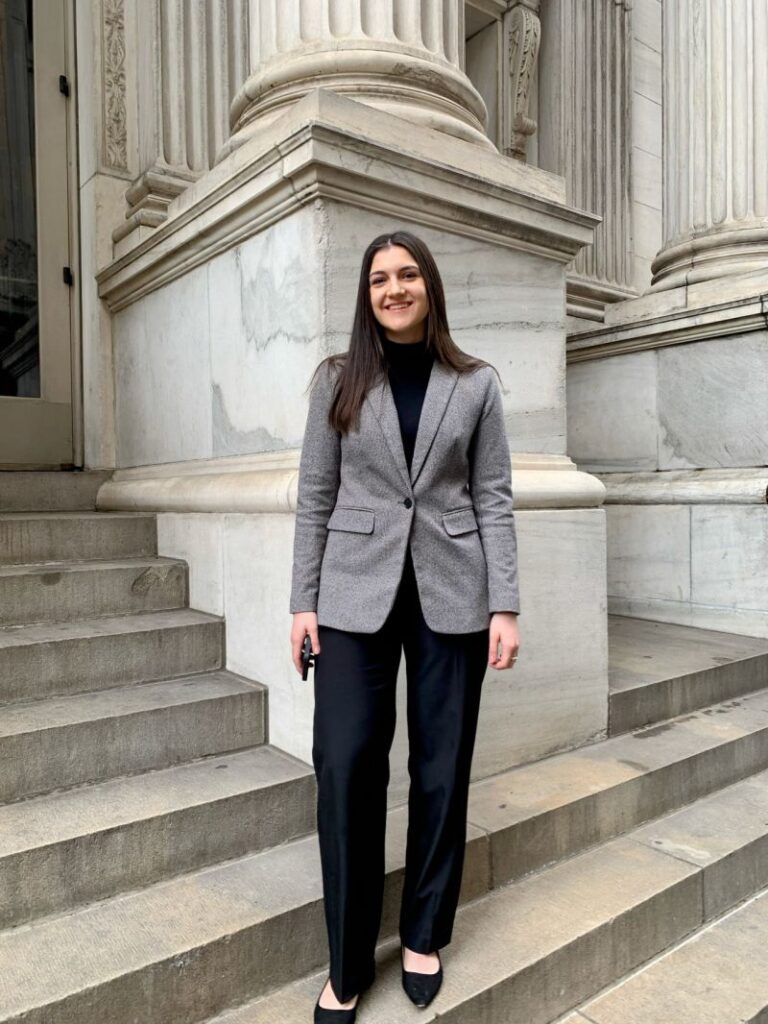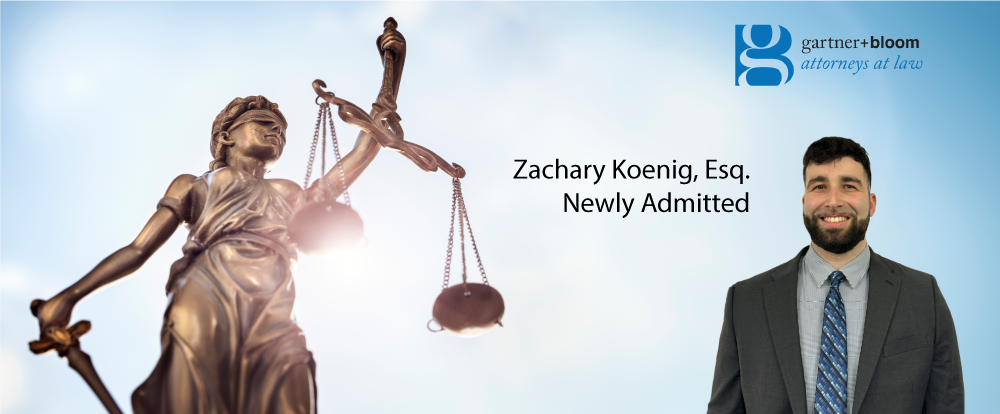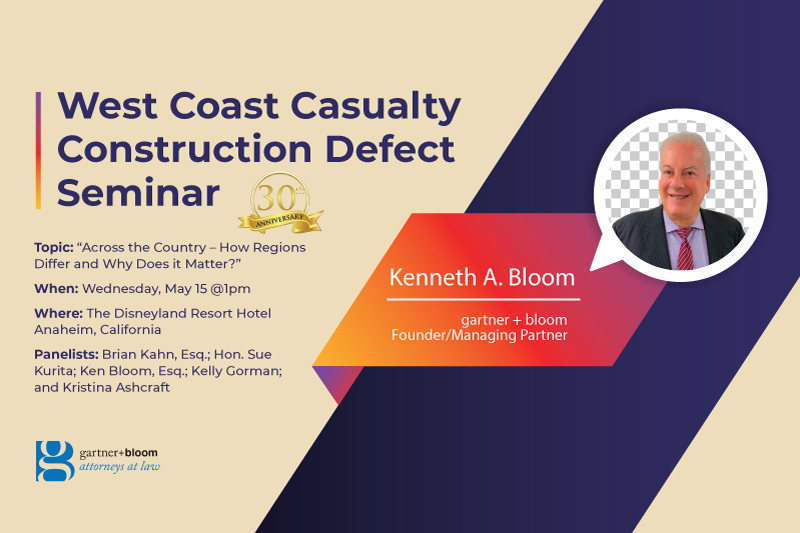Celebrating 30 Years
We are thrilled and proud to announce that gartner + bloom, P.C. is celebrating our 30th anniversary this month. Cheers to 30 years of delivering outstanding excellence and dedicated advocacy to our clients!

Congratulations Natalie!
gartner + bloom PC proudly celebrates and extends a warm Congratulations to Associate, Natalie Drainville on her recent induction to the NY Bar. Champagne toast for you, Natalie🥂from all of us on this incredible milestone👏👏

Congratulations Zach!
gartner + bloom PC proudly celebrates and extends a warm Congratulations to Zachary Koenig on his recent induction to the Bar. Cheers to you, Zach🥂from all of us on this incredible milestone👏👏👏

Partners to Speak at West Coast Casualty’s Construction Defect SeminarPartners to Speak at
Please join us for the 30th year Anniversary celebration of the West Coast Casualty's Construction Defect Seminar being held from May 15th through May 17th at the Disneyland Resort hotel in Anaheim, CA.
Come listen to a vast array of multi generational insights and perspectives as esteemed panelists, Ken Bloom, Brian Kahn, Hon. Sue Kurita, Kelley Gorman, and Kristina Ashcraft demystify “Across the Country ~ How Regions Differ and Why Does it Matter?”

Complete Win in Complex Corporate Litigation Matter
Congratulations to the chair of our hashtag#complex hashtag#litigation practice leader, Partner Todd Shaw on a resounding and complete win in a complex corporate litigation matter in Supreme Court, Nassau County.
The Plaintiffs sought in excess of $15 million from gartner + bloom PC’s client stemming from the failed development of a hotel in Queens County. The Plaintiffs first brought suit in Supreme Court, New York County.
Partner Todd Shaw successfully had those claims dismissed on a pre-answer motion to dismiss pursuant to both CPLR 3211(a)(1) and (a)(7). Then, with new counsel, Plaintiffs brought another lawsuit against our client, this time in Supreme Court, Nassau County, adding new causes of action and rebranding the facts.
The attempt was a total failure. Not only did Todd successfully have the entire $15 million lawsuit dismissed pursuant to CPLR 3211(a)(5), but the Court agreed with Shaw that Plaintiffs actions were frivolous, awarded sanctions against the Plaintiffs, and directed the Plaintiffs “to avoid further forum shopping.” Cheers to you, Todd on an impressive victory.👏👏

Appellate Victory on Toxic Mold
gartner + bloom PC congratulates Partner Arthur P. Xanthos on scoring an impressive appellate victory by convincing an appellate court to reverse a Brooklyn trial judge on a complex toxic tort causation issue.
At the trial level, Arthur P. Xanthos requested and conducted a “Frye” hearing to disqualify the plaintiff’s medical expert from testifying that toxic mold exposure caused the plaintiff’s massive neurological, dermatologic, and internal injuries. The expert had intended to give a medical opinion at trial that the plaintiff suffered a cascade of physical injuries after exposure to toxic mold over a decade ago in our client’s building.
Despite a strong presentation at the hearing, the Brooklyn trial judge refused to disqualify the plaintiff’s expert, reasoning that a treating doctor should be able to say just about anything at trial. So Arthur appealed to the Appellate Division.
Yesterday the Appellate Division ruled, unanimously reversing the Kings County trial judge. In its ruling, the appellate court highlighted the very high standard a toxic tort plaintiff must attain to warrant a trial for bodily injury damages, and reasoned that Arthur’s evidence, witnesses, and arguments at the trial level sufficiently proved that plaintiff’s medical expert’s opinion on causation was not generally accepted in the medical community. Access a copy of the decision by clicking here https://lnkd.in/eBk3w8qg
Arthur’s successful result for the client is one of hundreds he and the firm have obtained in the defense of toxic tort lawsuits over the last 30 years, earning us our stellar reputation in the defense of such claims. Grand kudos🎩to you, Art on delivering a spectacular outcome!
